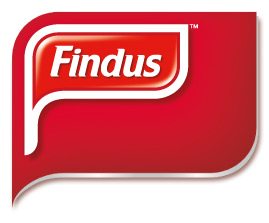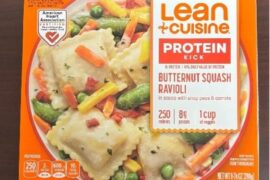London-based Fitch Ratings has issued a relatively positive financial assessment of Findus, the Bjuv, Sweden-headquartered frozen food company. Regarded as one of Europe’s leaders in the category, and ranked as the No. 1 branded player in Scandinavia and France, its product lines run the gamut from vegetables and side dishes to ready meals fish and seafood.
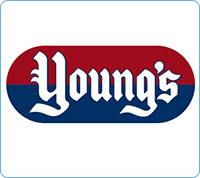 Owned by Lion Capital, the company employs 6,500 people. From Findus Finest French Green Beans, Sausage & Mash and Crispy Pancakes to Young’s brand Homestyle Breaded Cod Fillets, Jumbo Whole Shrimp and more, it produced 350,000 tons of products at manufacturing plants in five countries last year. Turnover amounted to EUR 1.4 billion.
Owned by Lion Capital, the company employs 6,500 people. From Findus Finest French Green Beans, Sausage & Mash and Crispy Pancakes to Young’s brand Homestyle Breaded Cod Fillets, Jumbo Whole Shrimp and more, it produced 350,000 tons of products at manufacturing plants in five countries last year. Turnover amounted to EUR 1.4 billion.
Fitch, a highly regarded ratings agency, on July 23 assigned Findus PIK S.C.A. (holdco) an expected Issuer Default Rating (IDR) of ‘CCC(EXP)’ and its planned £200 million PIK (payment in kind debt financing) notes issue an expected debt rating of ‘CC(EXP)’/’RR6′. The assignment of final ratings is contingent upon the receipt of the final documents conforming materially to the preliminary documentation received.
Findus PledgeCo S.a.r.l.’s (Findus) ‘B-‘ long-term issuer default rating (IDR) and Findus BondCo S.A.’s senior secured notes ‘B+’ rating are unaffected by the proposed issue.
 Fitch has not included the planned issue of £200 million notes in its leverage ratios due to their equity-like characteristics, mainly the issuer’s option to pay either PIK or cash interest. Fitch expects the interest on the new notes to be paid-in-kind given Findus’s current limited financial flexibility. Given the neutral impact of the planned notes on Findus’ cash flow and senior debt, the credit metrics of the restricted group are unchanged.
Fitch has not included the planned issue of £200 million notes in its leverage ratios due to their equity-like characteristics, mainly the issuer’s option to pay either PIK or cash interest. Fitch expects the interest on the new notes to be paid-in-kind given Findus’s current limited financial flexibility. Given the neutral impact of the planned notes on Findus’ cash flow and senior debt, the credit metrics of the restricted group are unchanged.
Key ratings drivers were detailed by Fitch as follows:
Geographic and Product Diversity
Findus remains the leader in its key markets of Norway, Sweden, Finland and France, with high market shares in branded frozen food and a diverse product range of frozen fish and ready-to-eat meals. However, Fitch expects increasing private-label penetration and competition from chilled food to continue putting pressure on the Findus group’s profit margins. Cost savings, while limited, are expected to remain the key driver of profit growth.
Commodity Prices Volatility
Sudden commodity price inflation, such as the recent all-time high price of salmon, in conjunction with greater volatility in food commodity markets, will continue to challenge Findus, especially in the event of a slowdown in consumer spending. Meanwhile, the group is benefiting from continued investments in product innovation and successful negotiations of contracts with food retailers to pass on price increases in raw materials.
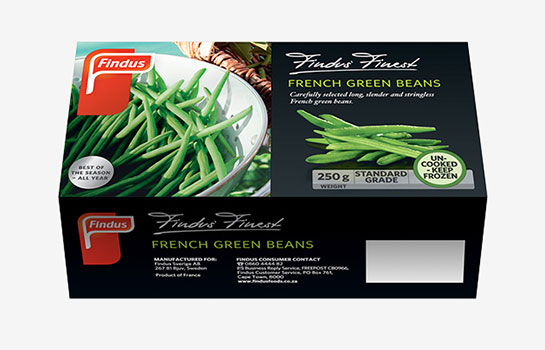
Scope for EBITDA Stability
Fitch expects product innovation and contract negotiations to mitigate raw material price increases. It therefore projects that EBITDA margins should remain fairly stable at FY14’s (year to September 2014) 8%. Performances in FY13 and during the first half of FY14 were in line with management’s expectations, despite challenges in frozen fish sales in Norway. EBITDA margins returned to the FY11 level after having previously been on a contracting path.
Resilient Food Consumption
Consumption of fast-moving consumer goods is fairly resilient through the economic cycle, although growth in mature and developed markets is limited. Findus’ product innovation capabilities and targeted marketing spending are key to ensuring its product offering remains relevant to consumers amid changing economic conditions, consumer preferences, health concerns and food price inflation.
Improving FCF
Findus has historically generated low levels of free cash flow (FCF), which is considered a weakness. Although Fitch expects a mildly negative FCF margin in 2014 due to one-off costs for refinancing, exchange rate translational differences and working capital unwinding, it anticipates cash generation to improve, albeit remaining relatively weak at around 1% during FY14-FY16.
High Leverage
Findus’ funds from operations (FFO) adjusted gross leverage at the end of the financial year to September 2013 (FYE13) post refinancing remained high at 6.4x. Fitch expects leverage to improve towards 5.5x with FFO fixed charge cover moving towards 1.8x by 2016. If maintained, this leverage profile would be considered relatively strong for the ‘B-‘ rating relative to close peers.
Positive Rating Sensitivities
Future developments that could, individually or collectively, lead to positive rating actions include:
- Improvement in operating profitability and organic business growth evidenced by EBITDA margin improvement up to 9% (FYE13: 7.9%) and FCF margin of 3% or higher (FYE13: 0.2%).
- Further de-leveraging with FFO adjusted leverage to or below 5.5x on a sustained basis (FYE13: 6.4x).
- FFO fixed charge cover at 2x or above on a sustained basis (FYE13: 2.3x).
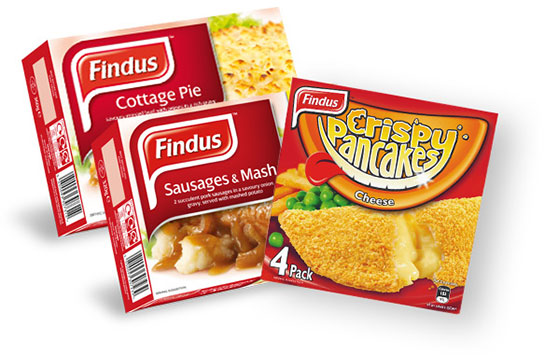
Negative Rating Sensitivities
Future developments that could, individually or collectively, lead to negative rating actions include:
- A contraction in organic revenue, for example resulting from increased competitive pressures, combined with a steady reduction in operating profitability leading to an EBITDA margin below 7%.
- Consecutive periods of negative FCF leading to erosion of the liquidity cushion.
- A sustained deterioration in FFO adjusted leverage to or above 7x.
- FFO fixed charge cover sustainably at 1.5x or below.
Liquidity and Debt Structure
Fitch anticipates that Findus’ liquidity will remain adequate, supported by a super senior RCF of £60 million and, in the longer term, mildly positive FCF generation from FY15.
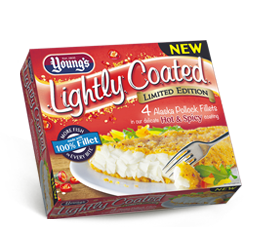 No Maturities Before 2018
No Maturities Before 2018
Findus’s current debt includes approximately £405 million of senior secured notes maturing in July of 2018, and revolving credit facility (RCF) of £60 million maturing in December of 2017. While there is no debt amortization pressure in the foreseeable future, Fitch believes that the deleveraging path will be slow and dependent on growth in EBITDA. It expects FFO adjusted leverage to remain above 5.5x until at least 2016.

